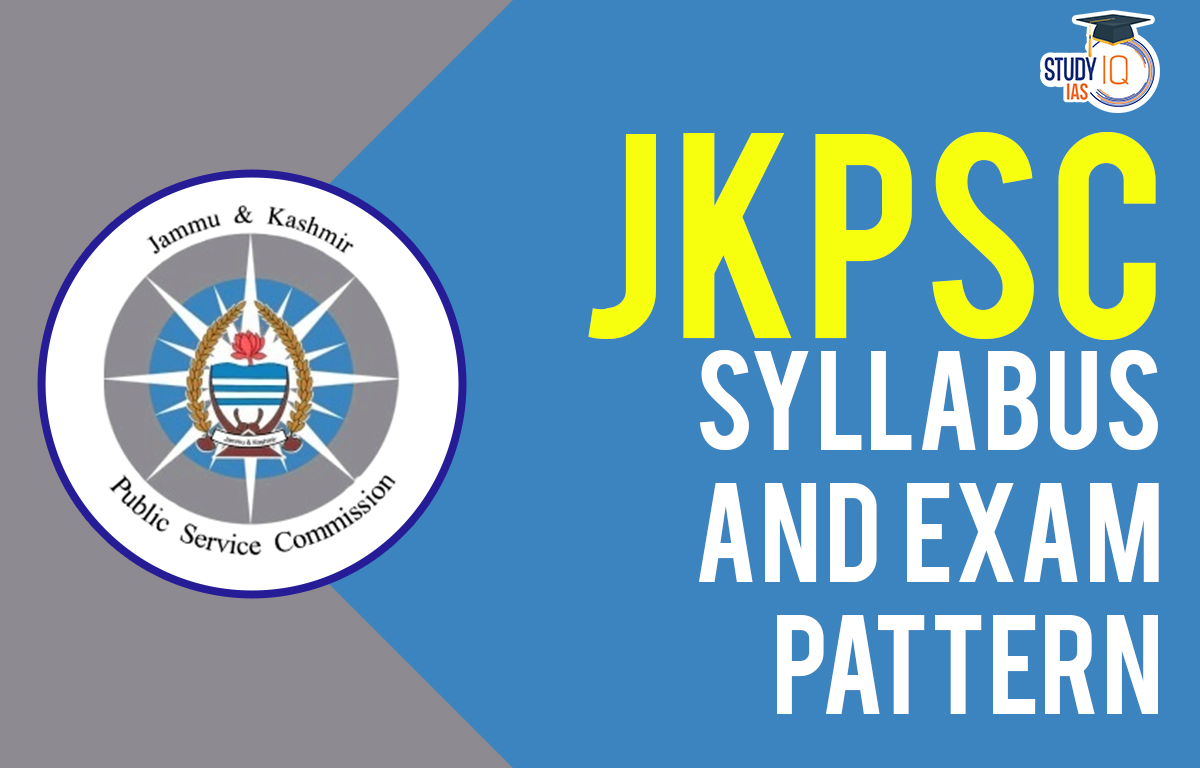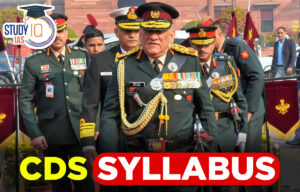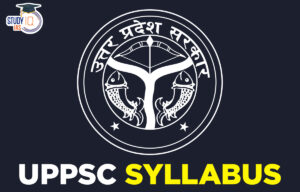Table of Contents
Jammu and Kashmir Public Service Commission (JKPSC) holds a Combined Competitive Examination (CCE) to appoint candidates to lucrative administrative posts within the state. If you are studying for JKPSC CCE 2025, comprehending the exam pattern and syllabus is pivotal for proper study.
JKPSC KAS Syllabus 2025
Candidates preparing for the JKPSC KAS Recruitment should know about the JKPSC syllabus and exam pattern, which will be crucial to your preparation since it will enable you to focus only on the subjects that are relevant to the JKPSC exam. Check the JKPSC Syllabus 2025 in the table given below:
| Stage | Subject | Prelims Syllabus |
|---|---|---|
| GS – Paper I | General Studies I |
|
| GS – Paper II | General Studies II |
|
| Stage | Subject | Mains Syllabus |
|---|---|---|
| English Paper | English Language |
|
| Paper I of General Studies | General Studies I |
|
| Paper II of General Studies | General Studies II |
|
| Paper III of General Studies | General Studies III |
|
| Paper IV | Ethics and Integrity |
|
| Optional Paper | Optional Subject (choose one) |
|
| Interview Stage | Evaluation Criteria | Focus Areas |
|---|---|---|
| Interview | Mental alertness |
|
JKPSC KAS Syllabus 2025 PDF
Jammu Kashmir, Public Service Commission released the JKPSC CCE Syllabus 2025 on its official website in PDF Format. Candidates can download the JKPSC Syllabus 2025 PDF from the direct link provided below:-
JKPSC Exam Pattern 2025
The Jammu Kashmir PSC KAS exam pattern is set by the Commission and is divided into three parts. Candidates must go through all three parts to be qualified. Each stage is qualified in its own way. The three stages of the examination include Prelims, Mains, and Interview.
JKPSC Prelims Exam Pattern
- Preliminary Examination is objective in Nature.
- It is of 2 Papers consisting of 200 marks each which is 2 hours.
- Candidates who clear the Preliminary Examination will be invited for the main examination.
| JKPSC Exam Pattern 2024 Prelims | |
| Paper | Marks |
| Paper-I | 200 |
| Paper-II | 200 |
| Total | 400 |
JKPSC Mains Exam Pattern
- The main paper is descriptive in Nature which has been discussed below.
- Candidates must score the minimum qualifying marks to be qualified for the next round of the selection process.
| JKPSC Exam Pattern for Mains | |
| Paper | Marks |
| English | 300 |
| Paper-I | 250 |
| Paper-II | 250 |
| Paper-III | 250 |
| Paper-IV | 250 |
| Paper-V | 250 |
| Paper-VI | 250 |
| Paper-VII | 250 |
| Total | 2050 |
JKPSC Interview Exam Pattern
Personal Interview is the last round for the selection process of JKPSC. The Candidates who clear the mains examination will be called for the Interview round by the Jammu and Kashmir Commission.
| JKPSC Exam Related Links | |
| JKPSC Exam Notification 2025 | JKPSC Syllabus and Exam Pattern |
| JKPSC Eligibility Criteria | JKPSC PYQs |


 CDS Syllabus 2025, Download Subject Wise...
CDS Syllabus 2025, Download Subject Wise...
 NDA Syllabus 2025, Download Maths and En...
NDA Syllabus 2025, Download Maths and En...
 UPPSC Syllabus 2025 PDF, Check Prelims a...
UPPSC Syllabus 2025 PDF, Check Prelims a...





















